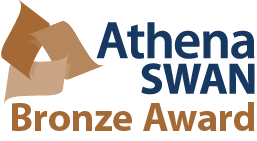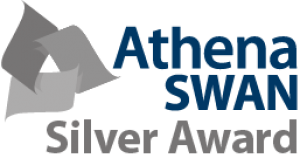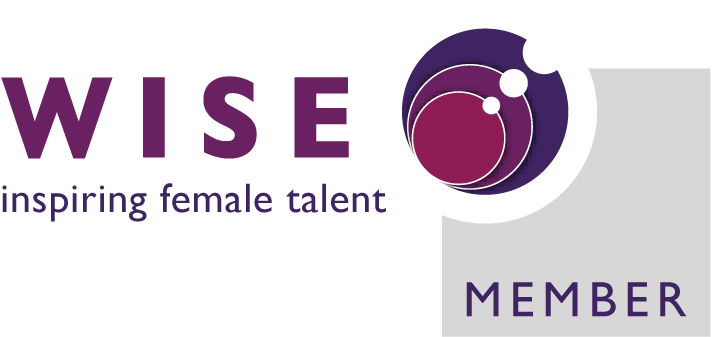You are here
- Home
- Mr Mike Richards
Mr Mike Richards
Professional biography
Mike Richards joined The Open University in 1996 to help trial teaching over the Internet. Since then he has taught courses ranging from an introduction to robots to the engineering works of Leonardo da Vinci; but has spent most of his time writing about security - everything from the Enigma machines to e-shopping.
Mike started by supporting a small group of pioneering students and associate lecturers - using sluggish modems and primitive browsers to connect them with a purpose built server running on equal mixes of scripting languages, prayers and swearing. From these trials, Mike joined the team that presented M206, the Open University's first computing module designed for online study. It wasn't just the students who learned a lot - Mike realised that sites with tens of thousands of users, hundreds of pages and huge numbers of changes really needed better technology; so two years later he created the OU's first interactive module site built using ColdFusion database integration that allowed students to report issues and receive regular email updates.
In this time, Mike was also working with the BBC on material for the series 'People's War' about the experiences of those who lived and fought in the Second World War. He developed and presented teaching material relating to the pioneering cryptography that took place at nearby Bletchley Park. 'People's War' became a road-show that took exhibits to locations across England during which Mike was invited to speak about code breaking and the work of Alan Turing.
Clearly, he didn't have enough to do, so Mike was next set the task of working on the educational potential of robots. As well as developing OU teaching materials about LEGO MindStorms, Mike took robotics into schools in the Milton Keynes area as well as helping officiate in the RoboFesta educational movement. This was his first introduction to the concept of teaching computer programming using blocks; an idea invented by the MIT Media Lab - pay attention this becomes important later.
A short break from teaching computing had Mike work on an OU short-course about the lesser-known achievements of Leonardo da Vinci. Intended to accompany a major BBC documentary series, the tie-in OU materials became one of the most successful promotions the university has ever produced. Mike's contribution to the new course included the engineering concepts behind Leonardo's unbuilt Galata Bridge and his colossal Sforza Horse.
Back in the world of Computing, Mike was assigned to the team developing the OU's first computing course designed for absolute beginners; M150. He wrote material describing the workings of the world-wide web, the importance of markup languages such as HTML and XML as well as developing a range of activities to allow a huge number of students to begin exploring their potential as authors of web materials. Still on M150, he wrote the first substantial material about the role of cryptography in modern society and the ethical issues of computer technologies as they relate to intellectual property. A pattern was beginning to emerge.
Around this time, Mike made his first inroads into working with the BBC as an academic consultant for factual programming developed in conjunction with the Open University. Gone were the days of kipper ties and wonky blackboards. In were world-spanning adventures with shiny new presenters. The first project Mike worked on was The Virtual Revolution broadcast in 2010 that introduced BBC2 audiences to the people who invented the Internet, the WWW and who were developing the services that we now all rely on. Virtual Revolution went on to win digital Emmys and BAFTAs; someone neglected to invite Mike to the parties.
Instead, Mike was doing something really dumb - he said 'I have a great idea!' - and someone in power gave him the money to create a new level one module, TU100, based around the infant technology of ubiquitous computing (the internet of things). Before the iPhone was even a thing, Mike's team were developing radically new teaching materials to explore the potential of this technology using hands-on learning that had been pioneered by children's education. Using his experience of the LEGO Mindstorms technology, Mike went to MIT Media Lab to ask if the OU could use their Scratch programming language in the context of adult learners. MIT were delighted to help and so Sense was born - an internet connected drag-and-drop language that could communicate with sensors. The sensors were supplied by the SenseBoard, a plug-in USB board based on Arduino technology developed especially for TU100. As well as leading the team, Mike authored a sizeable part of TU100, including sections exploring the potential of ubiquitous technology to change the world (and we still managed to undersell it), the digital divide and was a co-author on the programming guide that allowed novices to become confident programmers using Sense and the SenseBoard to explore their world and communicate their findings to fellow students. TU100 saw OU staff sent to every corner of the world from Seattle to Iceland to Nepal in order to show how technology was changing people's lives - for good and for bad; and how different societies employ technology in different ways. TU100 went on to win a number of teaching awards and was taken by many thousands of students.
After handing over TU100, Mike was put to work performing an academic edit on the OU's novel computer forensics module M812. Mike's role was to consolidate the writing of a number of staff, to reduce its overall length, impose a pedagogy and develop a technology primer for students less familiar with some aspects of computer technology such as computer operating systems and encryption (there it is again).
Mike and Arosha Bandara jointly developed Computing's first MOOC on the Open University's FutureLearn platform. Their Introduction to Cyber Security, sponsored by the then Department of Business, Innovation and Skills and supported by the MoD, Cabinet Office and GCHQ supported government campaigns to increase computer security awareness amongst the public and business alike. Over eight weeks of study, novices are introduced to key cyber security concepts as well as a range of techniques to improve their own security and their ability to find reliable information. During four years of presentation, the course has been studied by more than 203,000 learners, adopted by a number of institutions including the Metropolitan Police, GCHQ itself and Crown Estates; and nominated for education awards. Mike and Arosha later worked with the Foreign and Commonwealth Office and Qatar University to develop an Arabic-language version of the MOOC. The MOOC has also been converted into a self-study course hosted on the Open University's OpenLearn service. Following the introduction of the MOOC, Mike was invited to join a United Nations panel developing cybersecurity awareness in sub-Saharan East Africa.
During this time, Mike was also working on several projects with the BBC; including the six-part BBC News series, Cybercrimes with Ben Hammersley, which became the first OU programme to be available on Netflix; and Game Changers - a dramatisation of the development of Grand Theft Auto starring Daniel Radcliffe. Mike later had an 18 month secondment to act as a liaison between the OU and BBC for the development of new television and radio programming.
Returning to teaching, Mike found himself joining two teams each producing one-half of the replacement for TU100. For TM111, Mike's involvement has been to write material explaining the concept and use of data from the very simplest spreadsheets through to the processing of 'big data'. He is particularly proud that he spotted the use of big data in American elections nearly two years before anyone had heard of Cambridge Analytica. His second contribution to TM111 was an introduction to algorithmic thinking which is conducted entirely through playful activities using pieces of paper, coloured pens and pencils. This material compliments video resources from the BBC TV programme The Secret Rules of Modern Living developed during Mike's time working with the BBC.
At the same time, Mike was working on TM112 where he is the author of six weeks of study concentrating on the social aspects of computing - in particular computer security. Beginning with an introduction to the threats facing every computer user, Mike leads the student from how simple spam messages are the tip of an iceberg of computer crime and the involvement of state players in such threats as the Stuxnet attack on Iran. Students are encouraged to proactively explore beyond the teaching materials, to research and evangelise the role of computer security. In the second and third parts, students learn about hashing and encryption and how they are used (and abused) to secure and authenticate data. The material is explored in the context of everyday activities such as online shopping - showing how technologies such as TLS/SSL are built on the fundamental building blocks introduced earlier; as well as the currently fashionable/snake oil of blockchain technologies.
Moving on to parts three and four of Mike's contribution to TM112; he introduces the Tor network and guides students through the Darknet - what it is, why it isn't all bad and why it is both liberating and scary. During these parts, Mike begins to introduce the ethical aspects of computers - encryption keeps us safe and simultaneously threatens us. Attempts to legislate acceptable content and encryption are discussed and students are expected to develop arguments for both sides of the debate using a number of tools including argument mapping. These parts introduce legal aspects of computing; most notably the Regulation of Investigatory Powers Act, the Computer Misuse Act and the Data Protection Act (including GDPR); the latter two are explored using the extended case study of the 2016 hack of TalkTalk - a topic with which most students will be familiar, even if they did not know what actually happened.
Mike's final part for TM112 is an exploration of freedom of speech and censorship. Using John Perry Barlow's Declaration as a starting point, Mike asks students to question what is meant by freedom of speech and how censorship takes many forms; from government intervention (such as in China), through self-censorship and the role of algorithms to generate filter bubbles of information. Students engage with these contexts by researching scientific papers on the role of search engine rankings on vaccination information and political candidates, as well as studying how algorithms on social media distort people's view of breaking, controversial news stories.
Moving on from TM112, Mike is going to be looking at developing hands-on cybersecurity teaching for OU students and exploring the potential for more problem-based approaches to teaching and assessment. Though he is secretly hoping someone from Marvel will call and offer him the role of Tony Stark if Robert Downey Junior ever gets bored.
Research groups
| Name | Type | Parent Unit |
|---|---|---|
| Centre for Research in Computing (CRC) | Centre | Faculty of Mathematics, Computing and Technology |
Publications
Journal articles
Bob or Bot: Exploring ChatGPT’s answers to University Computer Science Assessment (2024-01-14)
Richards, Mike; Waugh, Kevin; Slaymaker, Mark; Petre, Marian; Woodthorpe, John and Gooch, Daniel
ACM Transactions on Computing Education, 24, Article 5(1) (pp. 1-32)
Passive or active learning: the challenges of teaching distributed computing using Raspberry Pi clusters to open distance university students (2022)
Gooch, Daniel; Rosewell, Jonathan; Leith, Douglas and Richards, Mike
Open Learning: The Journal of Open, Distance and e-Learning ((Early Access))
The benefits and challenges of using crowdfunding to facilitate community-led projects in the context of digital civics (2020-02)
Gooch, Daniel; Kelly, Ryan; Stiver, Alexandra; van der Linden, Janet; Petre, Marian; Richards, Mike; Klis-Davies, Anna; MacKinnon, Jessica; Macpherson, Robbie and Walton, Clare
International Journal of Human-Computer Studies, 134 (pp. 33-43)
A comparison of MOOC development and delivery approaches (2017)
Smith, Neil; Richards, Michael; Caldwell, Helen and Bandara, Arosha
International Journal of Information and Learning Technology, 34(2) (pp. 152-164)
Educating the Internet-of-Things generation (2013-02)
Kortuem, Gerd; Bandara, Arosha; Smith, Neil; Richards, Michael and Petre, Marian
Computer, 46(2) (pp. 53-61)
Placing computer security at the heart of learning (2008)
Richards, Mike; Price, Blaine A. and Nuseibeh, Bashar
Progress in Informatics, 5(2008) (pp. 91-98)
Developing Robotics e-teaching for teamwork (2003)
Price, Blaine A.; Richards, Mike; Petre, Marian; Hirst, Anthony and Johnson, Jeffrey
International Journal of Continuing Engineering Education and Life-long Learning, 13(1-2) (pp. 190-205)
Remote electronic examinations: student experiences (2002-11)
Thomas, Pete; Price, Blaine; Paine, Carina and Richards, Michael
British Journal of Educational Technology, 33(5) (pp. 537-549)
Book chapters
A Comparison of MOOC Development and Delivery Approaches (2017-01-16)
Smith, Neil; Richards, Mike; Caldwell, Helen and Bandara, Arosha
In: Childs, Mark and Soetanto, Robby eds. Online Learning for STEM Subjects: International Examples of Technologies and Pedagogies in Use
ISBN : 9781138934443 | Publisher : Routledge
Conference items
Summer of Code: Assisting Distance-Learning Students with Open-Ended Programming Tasks (2018-07-02)
Smith, Neil; Richards, Mike and Cabrero, Daniel G.
In : 23rd Annual Conference on Innovation and Technology in Computer Science Education (ITiCSE ’18) (2-4 Jul 2018, Larnaca, Cyprus) (pp. 224-229)
A comparison of MOOC development and delivery approaches (2016-07)
Smith, Neil; Caldwell, Helen and Richards, Mike
In : International Conference on Information Communication Technologies in Education (7-9 Jul 2016, Rhodes, Greece)
Civic crowdfunding: how do offline communities engage online? (2015-07-13)
Stiver, Alexandra; Barroca, Leonor; Petre, Marian; Richards, Michael and Roberts, Dave
In : British HCI Conference (13-17 Jul 2015, Lincoln) (pp. 37-45)
Starting with Ubicomp: using the SenseBoard to introduce computing (2012-02-29)
Richards, Michael; Petre, Marian and Bandara, Arosha
In : 43rd ACM Technical Symposium on Computer Science Education (29 Feb - 3 Mar 2012, Raleigh, NC)
Teaching UbiComp with Sense (2010-10)
Richards, Michael and Smith, Neil
In : NordiCHI (16-20 Oct 2010, Reykjavik, Iceland)
Introducing TU100 ‘My Digital Life’:
Ubiquitous computing in a distance learning environment (2009-10)
Richards, Michael and Woodthorpe, John
In : Ubicomp 2009 (30 Sep - 3 Oct 2009, Orlando, Florida, USA)
Other
Best Practices in using Technological Infrastructures (2020-07)
Howson, Oliver; Adeliyi, Adeola; Willis, Alistair; Hirst, Tony; Charlton, Patricia; Gooch, Daniel; Rosewell, Jonathan; Richards, Mike; Wermelinger, Michel; Piwek, Paul; Savage, Simon; Lowndes, Charly; Thomas, Elaine and Smith, Andrew
The Institute of Coding



